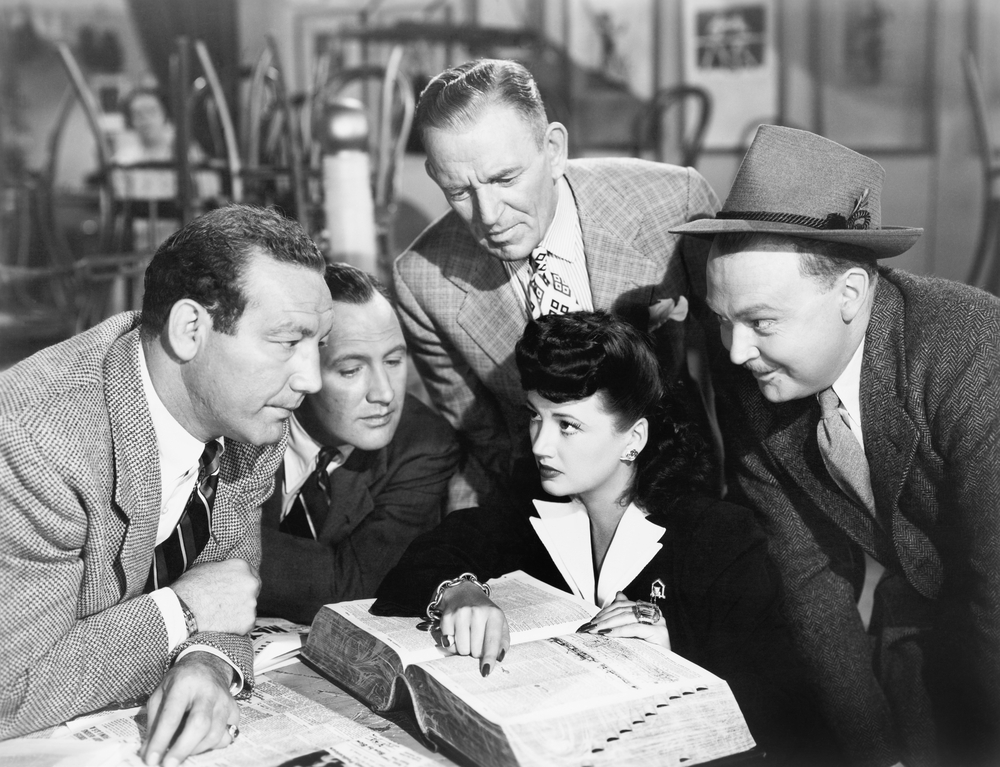Erika Blomerus, our new Global Audit Manager, has spent a good deal of time auditing creative agencies. She likens the task to draining a swamp while tackling the alligators that keep popping up — unreconciled jobs, underspends, inter-project transfers and hitherto unseen ‘pots’ of client cash that suddenly surface.
It’s seldom cause for celebration when you and your creative agency decide to go separate ways. Somehow, creative agencies can bring an emotional-cultural component to the relationship. Perhaps it’s because they necessarily get very close to the DNA of your brand: indeed, sometimes they’re instrumental in defining the brand as part of their work. Moreover, the very nature of the marketing and advertising business tends to bring minds together, often around tight, partnership-building deadlines.
But of course, business is business and when the parting of ways does happen it’s time for a final summing up. Who owes what? Where? Why? It’s a case of now or never: this is the time to make sure justice is done all round. No golden goodbyes, no loose ends, nothing that could later return to bite you in the bottom line.
But of course, draining swamps means having to deal with a few snapping alligators.
Alligator alert: Financial reconciliations and creative agencies
Let’s remind ourselves about what we’re actually trying to do when we’re called in to drain the typical creative agency exit-audit swamp. Our mission is to carry out a financial reconciliation to ensure that any monies that might be floating around in accounting no-man’s-land are returned to their rightful owners under the terms of the contract between the two parties, leaving a nice clean slate and a feeling of fair play on all sides. Simples.
But of course, draining swamps means having to deal with a few snapping alligators.
For instance, you typically choose your creative agencies for their great ideas rather than their killer financial prowess. Back when they won the pitch, their skills in budgetary due diligence were probably not uppermost in your selection criteria. Few brand professionals would be surprised to hear, then, that when we go in and start sifting through the murk of a client-agency relationship, we expect to find the unexpected. These are creative people, not numbers people, after all.
What’s supposed to happen is: at the end of each job or budget phase, the agency reconciles the amounts billed to you against the costs actually incurred, identifies any amounts that need to be returned — and actually hands back the money. Needless to say, that doesn’t always/often happen. Over the years we’ve recovered some pretty big chunks of sunken treasure from the creative swampland and returned them to the brand’s budget.
But how does the problem start? To be fair, some projects do just drag on or naturally straddle many months. They’re complex, many-stranded, interwoven. On top of that, proper job reconciliations take work — often days of work, usually unbillable. So guess what? Job reconciliations get de-prioritised, back-burnered, and hopefully (from the agency’s perspective) buried. As a result, the agency could end up holding onto significant amounts of money for a long period of time before (or if) it’s finally unearthed and passed back to you.
If, heaven forfend, a parting of ways should occur when lots of these unresolved issues are lurking below the surface, agencies will often make a commercial decision on whether to pass any credit balances on jobs back to the client. If the contract doesn’t require them to return balances, then the chances are they won’t. Why would they?
And even if the contract does require them to return reconciled balances, the agency will take a view on how likely it is you’ll find out about those balances. If they figure you’re just too busy to be bothered to conduct an exit audit, they may decide that silence is the best strategy. Less work for you, and a nice consolation prize for them. Win-win, right?
When I worked as an internal auditor, my investigations netted some pretty large sums being held by the agency in respect of departed clients. When I asked about these amounts, the agency’s response was usually that the client never asked, so they had no reason to give them back. Let sleeping alligators lie and all that.
Are some of them pesky alligators yours?
In an ideal world, there’d be no swamp to drain. It’s important to recognise whether you, the client, are actually an unintentional part of the problem.
Ask yourself if, as a client, you’ve ever fed any of these commonly-seen alligators:
- The Don’t Look Now Alligator: Not following up on reconciliations once a job has been closed.
- The Maybe Later Alligator: Asking agencies to ‘hold onto’ funds for use in future years, in order to avoid losing unspent annual budgets.
- The Sideways Drift Alligator: Asking agencies to slide unused budget over from one job to another at short notice, which often requires them to override their already stretched job reconciliation processes.
The takeaway from this is simple: it’s pretty important for clients to audit their creative agencies to ensure that they’re actually following prudent financial practice. It’s vital to have a contract to define what this means. And it’s crucial that the contract includes clauses requiring agencies to complete job reconciliations and return any credit balances due.
Make it snappy: Talk to us before you’re completely swamped!
They're gonna love this…
Related Buzz…
Hidden risks at creative agencies
While media invariably grabs the headlines, are advertisers missing a trick with their creative agencies? Creative…
Gross ambiguity or net confusion: Understanding media commission rates
Commission fees are one of the two main methods used by advertisers to remunerate their media agencies (the other…
Agency reporting dashboards: Safe to steer by?
Can your agency’s reporting dashboard be trusted? Would you know if it wasn’t providing accurate campaign insights?…



